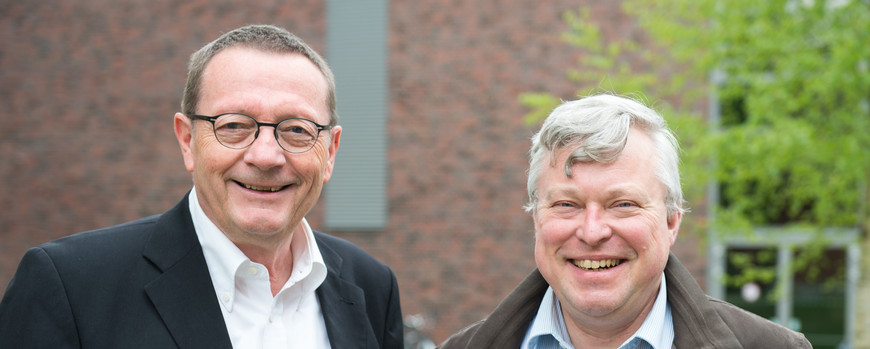European Perspectives for Public Administration
EPPA
European Perspectives for Public Administration: The future of Public Administration
During the last decades administrative realities, but also our theories and perceptions, have changed in many ways and many directions. Starting from traditional Old Public Administration (OPA) we have seen all kinds of reform waves and concepts, like New Public Management (NPM), New Public Governance (NPG), Digital Era Governance (DAG), the Neo-Weberian State (NWS) and so on. Even though it is doubtful how realistic and useful all these ideas and concepts have been, there can be no doubt that the public sector of today and the future in many ways is and will be very different from what we have been used to, and also, from what we may perceive as appropriate and legitimate. From rather clear cut layered levels of hierarchies and responsibilities we can observe ‘marbled cakes’ which give a flavor of an increased complexity where hierarchies are necessary but certainly not sufficient. Accountability and legitimacy are contested, as are performance and routines. All this obviously impacts ‘public administration’ (the practice of administrating policies and organizations) but it should also impact 'Public Administration' (the practice of teaching and research for practical public administration).
The project was led by Prof. dr. dr. hc. mult. Geert Bouckaert (KU Leuven) and Prof. Dr. Werner Jann (University of Potsdam) and was funded by the prize money of the Anneliese Maier Research Award, awarded by the Alexander von Humboldt Foundation. Geert Bouckaert received the Anneliese Maier Research Award on September 11th 2014, and when he accepted the invitation of Werner Jann to come to Potsdam, he suggested to launch the common “European Perspectives for Public Administration”.
The results of the first phase of the project are documented in the volume European Perspectives for Public Administrationwhich can be downloaded under open access. In the future the project will be continued by the European Group of Public Administration https://egpa.iias-iisa.org/ABOUT.php.
In the 'European Perspectives for Public Administration' (EPPA) we want to take stock of the most important developments, and we want to develop a distinctively European perspective of the field. In Public Administration, here always understood as the academic undertaking of teaching and research, there have been several and repeated attempts trying to review the 'state of the art' and to formulate future directions, and this may even be a sign of a certain lack of maturity of the field. But this, of course, is only an indication, that we should try harder. The most important attempts so far are probably the so called Minnowbrook conferences (1968; 1988; 2008) and the Bielefeld interdisciplinary project (1986). Even though these undertakings offered many inspirations, we are convinced that this discussion needs new inputs, and that we need a distinctively European view.
EPPA can therefore be understood as a European version of the above mentioned initiatives. Our basic question is how we as researchers and teachers will and should deal with the changing role of public administrations and the public sector. Our aims are
- to define the future role of Public Administration (as an academic undertaking) in the future university and the academic world,
- to take the world into account to strengthen the European voice in the world,
- and to take multidisciplinarity seriously.
The ambition of our project is to tackle these issues from a rather long term and broad perspective. We are thinking of combining four interrelated approaches:
1. Keeping an eye on the disciplines: What can we learn and how can we cooperate across the established disciplinary boundaries, which seem to become ever more imperative and un-impregnable?
2. Keeping an eye on the future: How can we learn trusting utopias and distrusting dystopias, learning to think beyond short term problems and solutions, but trying to be as realistic as possible?
3. Keeping an eye around us: How can we take different cultures seriously, avoiding a 'one solution fits all' approach, while at the same time keep learning from each other?
4. Keeping an eye on practice: What can we teach and how can we help, what are the practical lessons for teaching and research of all this?
The first topic is thus about re-emphasizing the existing and necessary contributions of economics, law, psychology, political science, history, anthropology, and other relevant disciplines in the field of Public Administration. How can we establish new forms of cooperation and learning, and how can we avoid or at least diminish academic silos and established misunderstandings? The second topic focuses on the fact that academic Public Administration has been for many years very Anglo-Saxon oriented, for example basically ignoring the contributions of public law and different national cultures. How can we enlarge this parochial view? The third topic asks how utopias and dystopias appeal to public administrations and to Public Administration. How should we deal with them in academic teaching and research? Just ignoring them, does not seem to be a very convincing option. The fourth topic is finally about organizing the accumulation of knowledge in Public Administration. How can we strengthen comparative research and teaching and how can we integrate different disciplines and scientific approaches with public administration practices?
Project duration: until March 2019

Prof. dr. dr. hc. mult. Geert Bouckaert
Project Leader

Prof. Dr. Werner Jann
Project Leader


